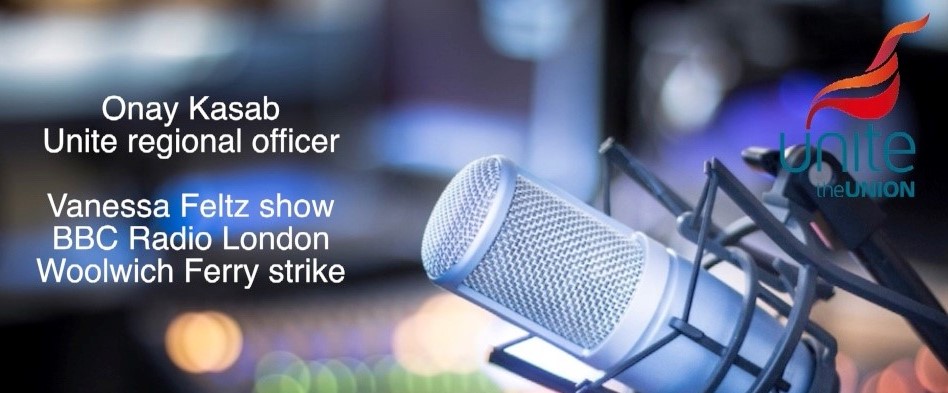‘Very poor record’
Workers, who operate the Woolwich Ferry used by an estimated 2.6 million passengers a year, will stage a 24 hour strike on Thursday, December 19 in a pay dispute.
The 56 workers, who are employed by Briggs Marine Contractors Ltd, voted unanimously for strike action which will start at 00.01.
Unite said that there has been a long history of poor managerial practice by the company.
The latest dispute centres on the failure to pay the London living wage (currently ÂŁ10.75 an hour) on basic pay; the imposition of changes to overtime and shift working; failure to adhere to the agreed job evaluation scheme; and failure to deal with equality issues.
In the summer, there were 10 days of strikes on similar issues, but that failed to bring a resolution. Unite re-balloted its members and, as a result, they will now hold a day’s strike on 19 December.
Two years ago, there was an acrimonious and long-running dispute at the ferry with the same employer, which runs the service on behalf of Transport for London (TfL), over a bullying culture and health & safety issues.
Unite regional officer Onay Kasab said, “It is understatement to say the management at Briggs Marine Contractors has a very poor record when it comes to employment relations over a number of years.
“Unfortunately, bad employment practice seems endemic within the management team as they continue to ignore previous agreements on job evaluation and equalities, and they â€slice and dice’ the pay of an already low-paid workforce,” he added.
“The most recent example is the failure to pay the London living wage, although the company claims that, if you take into account of overtime and weekend working, it is doing so.
“However, the correct way to calculate paying the London living wage is with basic pay and you don’t include additional payments, such as overtime, which the employer is doing,” Kasab explained.
“Unite will not stand by and allow this horror show of employment practice to continue. It is high time that Transport for London reviewed its contract with this notorious employer.
Â
“Unfortunately, it is the travelling public who will bear the brunt of the company’s unacceptable behaviour to its staff.”
About 20,000 vehicles a week use the free service across the Thames which opened in 1889, following the abolition of tolls across bridges to the west of London. An estimated 2.6 million passengers also use the ferry annually.
There has been a ferry in place at the site since the 14th century.
Â
 Like
Like Follow
Follow
